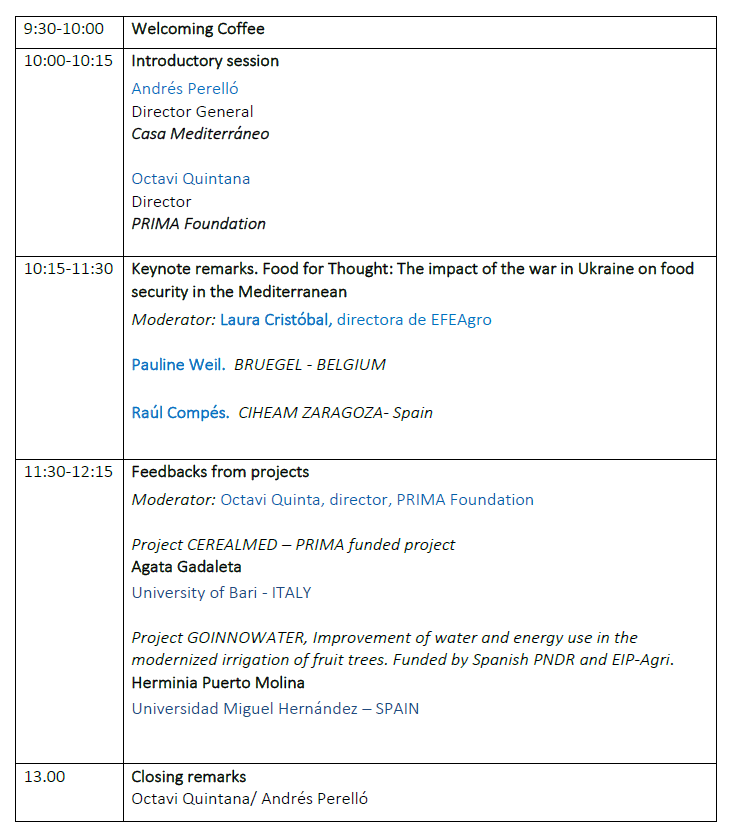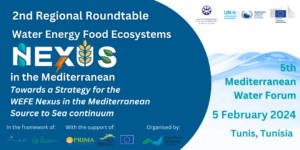Wednesday 29 June 2022 | 10:00 – 13:00 (CEST)
Background
Climate change affects the Mediterranean region significantly more than the world
average, further endangering the sustainable provision of food security. In this
context, the unfolding crisis in Ukraine and the ongoing fallout from the COVID-19
pandemic has roiled commodity markets and threatened food security, striving to
enhance sustainable development and resource efficiency in the specific hard-hit
The Mediterranean. Addressing this situation effectively necessitates urgent, deeper,
and more substantial transformation to a sustainable future.
The Russian invasion of Ukraine is already having major consequences for the global
economy. Gas prices are soaring in Europe, markets are volatile, and many supply
chains have been disrupted. While it has a more immediate impact on European
markets, its effects will soon be felt particularly in North African and Middle Eastern
countries, which will have to deal with consequences that will be more catastrophic
because of their greater dependence on imports from Russia and Ukraine.
Cereals and wheat in particular are strategic products for agricultural development,
food security, and agricultural trade in the Mediterranean region. The agricultural
economy constitutes one of the main sectors in the region which also requires the
necessary water resources for its correct exploitation. Most Mediterranean states
have become net importers of cereals. On average, two-thirds of the domestic
consumption of cereals is covered through purchases on international cereal
markets. Among the countries most dependent on Russian and Ukrainian wheat and
other cereal production is Egypt, the world’s largest importer of wheat.
In the Mediterranean, food insecurity is increasingly prevalent with a high risk of
worsening in the next twenty years. The food production deficit in this region is very
worrisome, in the medium and long term and must be taken seriously by political
leaders both in Europe and in the Mediterranean. Agricultural and food insecurity
(often exacerbated by climate change reasons) can cause social unrest, and political
turmoil and force individuals and populations to migrate.
Strategies to restore an amendatory level of food security exist and can be deployed as
part of sustainable development policies. Increasing and diversifying local food
production could contribute to reducing the dependency on some imported agricultural
products such as cereals.
The first workshop organized by Casa Mediterráneo, PRIMA, and CIHEAM focuses on
food security in the Mediterranean region in the context of crisis, particularly the
Russia-Ukraine war. The discussion will target the role of research and innovation to
contribute to improving food security in the Mediterranean region.





